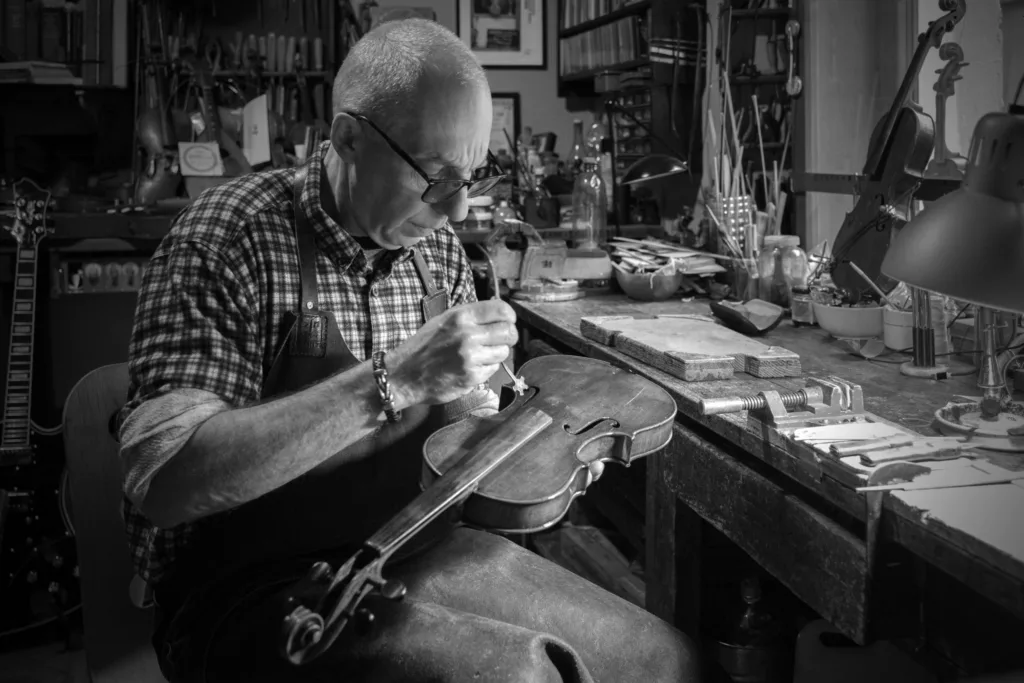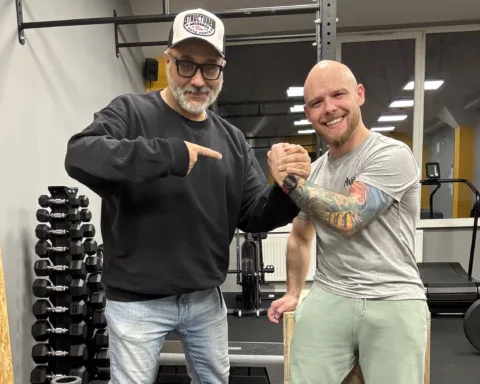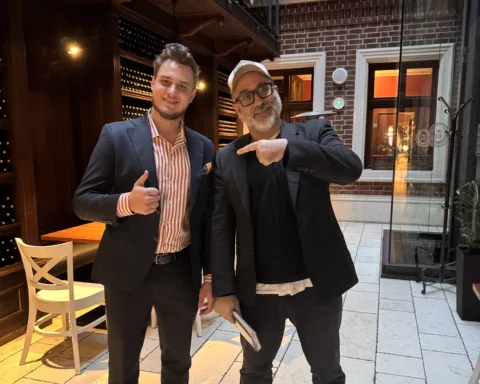Can You hear it?
You hear it if you walk slow enough.
Not from the tram, not in a rush, not scrolling. But if you take your time. If you stroll down the cobbles of Stare Miasto, past the shouting neon and the silent tenements, you might catch it. A creak of old wood. A whisper of pine resin. The sigh of a hand planing maple, the rasp of a bow pulled over a string, tight with time. It’s not a sound for everyone. But it’s still here.
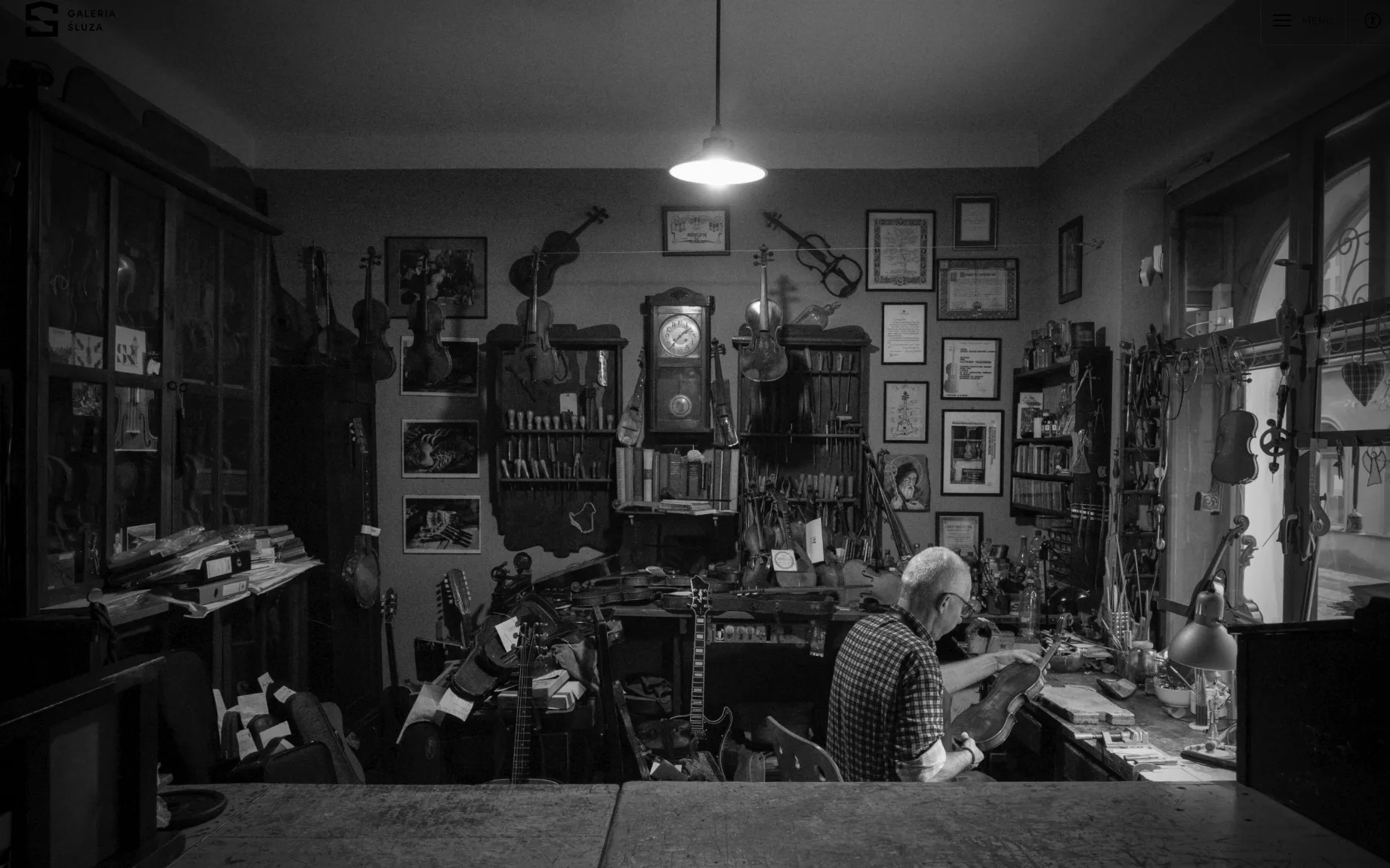
Right off ul. Woźna, at number 6 — tucked behind heavy wooden doors older than your Spotify playlist — lives one of the last of them. A place where violins are not shipped but born. Where sound comes from the soul, and the soul is made of oak, glue, and memory. This is the Lutnicza workshop — and it’s been here, in some shape or shadow, since 1885.
Not Just a Shop. A Shrine.
Four generations have passed through this place. Four generations of hands that knew the shape of sound. The kind of place where work starts with coffee, ends with dust, and in between — music is made. Not digital. Not instant. Not disposable. Craft. Time. Tools your dziadek might’ve known by name.
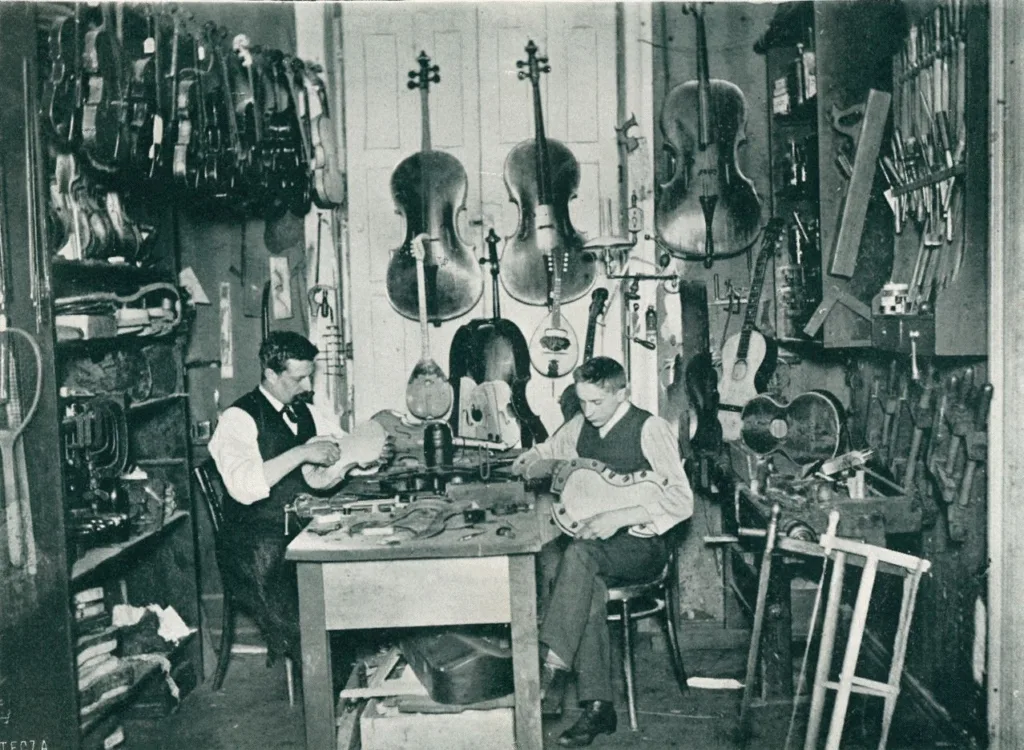
Franciszek Niewczyk started it all, back when Poland wasn’t even on the map. He made violins while the Empire cracked down, while languages were banned, while the word “freedom” was just a dream whispered at the back of church pews. He got exiled for being too Polish — kicked out of Poznań in 1907 for believing in his people and making something too good for the occupiers to stomach.
But he said he’d be back. And his son was. And his grandson. And now his great-grandson, Benedykt Niewczyk, holds the chisel, the brush, the story.
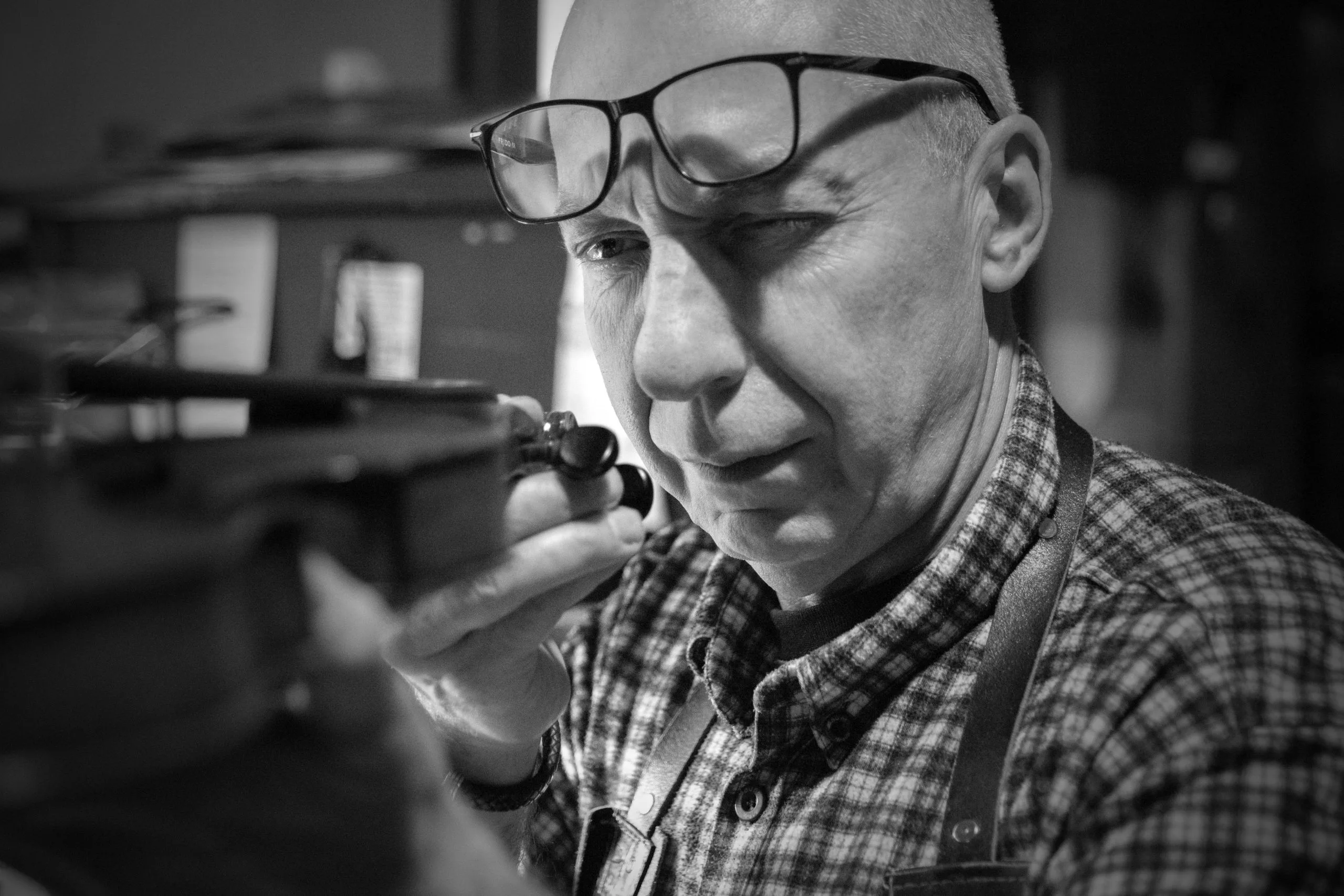
Time Travel on Woźna
Step into the shop and you’re stepping out of time. The air smells like varnish, wood, and memory. Violins hang like ghosts from the ceiling, waiting to be heard again. Light falls through tall windows in golden shafts that feel like they’ve been shining that way for 100 years.
They don’t rush here. Can’t. That’s not how violins work.
They’re made the old way. By hand. By heart. Each one with its own breath, each one with a label, a date, a signature like a birth certificate. Some go to concert halls. Some go to dusty basements. Some go halfway across the world.
But they start here.
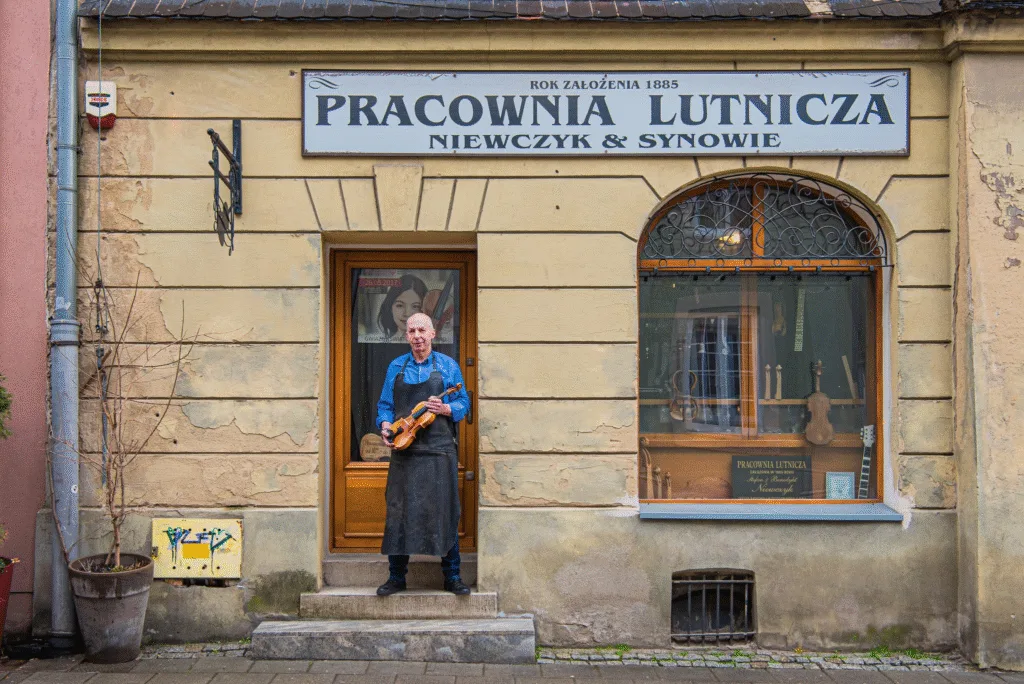
One of the Last
This isn’t just about violins. This is about all of them — the cobblers, the hatters, the bookbinders. The ones who don’t use AI, just their eyes and ears and tools worn smooth from years of quiet, focused making.
The city is losing them. One by one.
Rent goes up. Streets get louder.
Big windows become bars or nail salons.
But here on Woźna 6, you can still find a door to the past. Still see what it means to build something instead of buy it. Still hear a violin sing, not through a screen, but in the room.
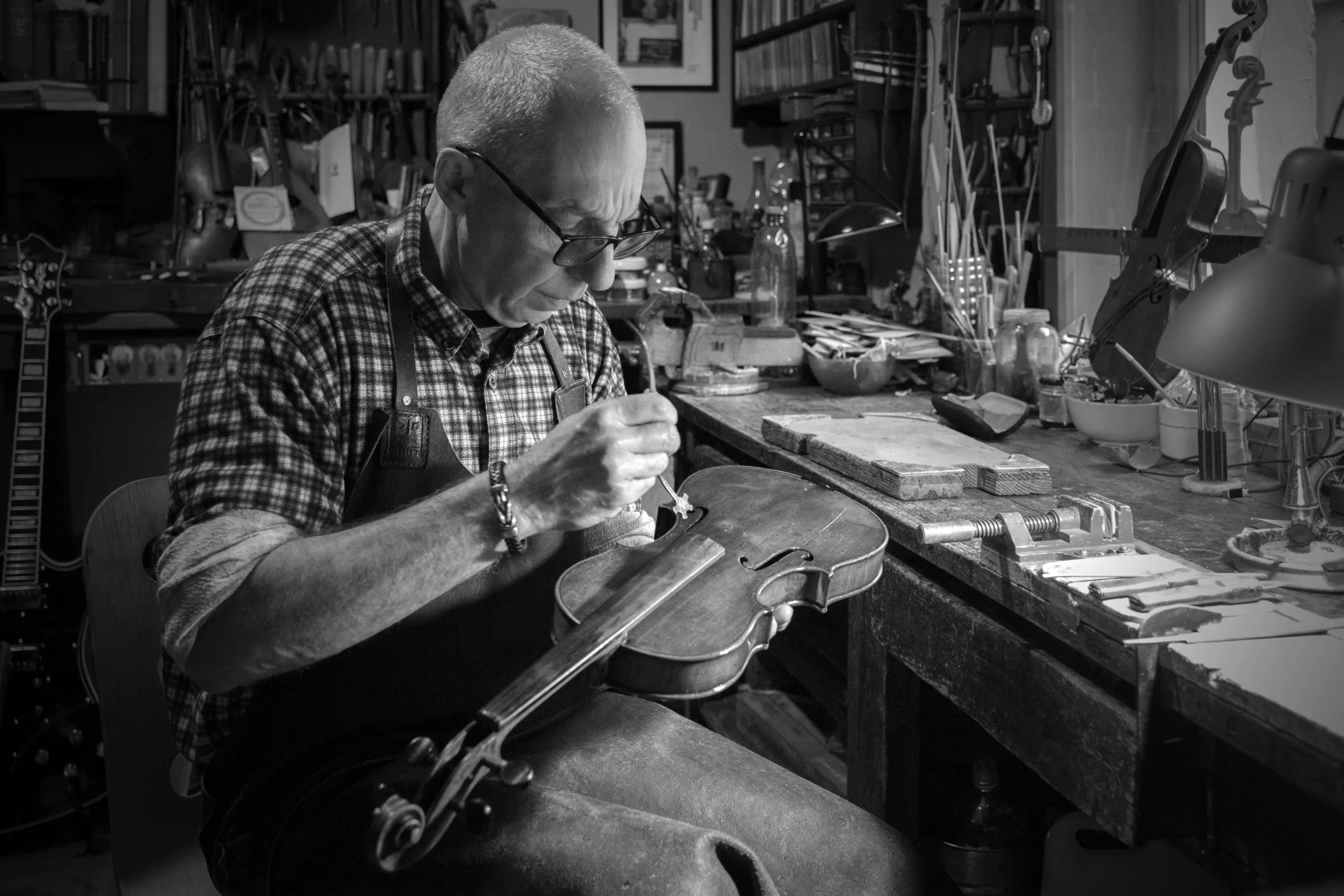
Go While You Still Can
If you’ve got a heart, if you’ve got ears, go visit them.
Not just because it’s historic. Not just because Menuhin himself tipped his hat.
But because you’re still allowed to care about something real.
Because the world might be changing, but not everything has to be forgotten.
And maybe, if you’re lucky, you’ll catch the sound of a new violin — raw, fresh, and full of promise — being tuned for the very first time.
And that sound?
That’s Poznań, baby.
Old-school. Analog. Alive.
Lutnicza Violin Workshop
ul. Woźna 6, Poznań
Open most days. Just knock. Be respectful. Be slow.
